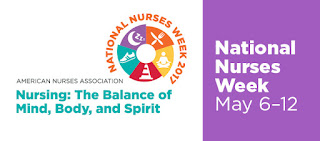MALARIA IN PREGNANCY
MALARIA IN PREGNANCY
'The scourge never ends'. This may be an apt description for one of the world's most prevalent infectious diseases-malaria.
Malaria potentially affects about 50% of the world's population majority of who live in sub-Saharan Africa. Pregnant women and the under fives form the bulk of its worst victims in endemic areas.
Malaria has been shown in many studies to worsen certain pregnancy outcomes. These include an increased incidence of anaemia and spontaneous abortions.
Others include
*Intrauterine growth restriction [IUGR]
*Stillbirths
*Prematurity
*Low birth weight
*fetal distress and congenital malaria.
The biological basis for these adverse outcomes has been extensively studied. Erythrocytes infected with Plasmodium falciparum accumulate in the placental bed.
This is through adhesion of the infected erythrocytes to molecules of Chondroitin A present in the placenta.
A prevalence of placental parasitaemia of between 10 and 45% in malaria endemic areas has been reported with significant Plasmodium falciparum dominance.The effect of malaria in pregnancy is worse in the first and second pregnancies compared to higher parities. Acute infection with high levels of placental parasitemia has been associated with preterm delivery while chronic placental parasitization is associated with intrauterine growth restriction, lower maternal hemoglobin and severe anaemia.
Pregnancy increases the frequency and severity of most infectious diseases but its effect on malaria seems worse. Several theories have been put forward to explain this increased risk including changes to the cellular immune responses that otherwise should offer protection, and increased attractiveness of the pregnant woman to mosquitoes. The former is believed to result from the increased level of circulating maternal steroids in pregnancy. The susceptibility to malaria including its complications like anaemia is worse in the first and second pregnancies especially in young gravidaes.
Though many of the infections may be asymptomatic in women in endemic countries, this does not preclude placental parasitization and its deleterious effects. Up to 20% of pregnant women in endemic areas have asymptomatic parasitemia and a recent study showed that about 40% of these will present with clinical malaria within a four week period. Cerebral malaria, acute renal failure and severe hemolysis, complications of malaria that are rare in adults in endemic areas, may be seen in pregnancy.
Control of Malaria in Pregnancy
1. Insecticide Treated Nets [ITN] have long been in use. These are mosquito nets that have been treated with Pyrethroids substances known to be deleterious to mosquitoes, the insects that spread the causative organisms that cause malaria
2. Intermittent Preventive Treatment [IPT] of malaria in pregnancy refers to the giving of at least 2 preventive treatment doses of an effective antimalarial drug during routine antenatal care to all pregnant women.
3. Adequate Case Treatment
This involves the use of effective chemotherapeutic agents to treat acute malaria attacks. WHO new guidelines for malaria treatment. This involves the use of Artemisinin-based Combination Therapy [ACT] as first line treatment for uncomplicated malaria. It also emphasized the need to confirm diagnosis of malaria before treatment and the need to complete therapy once commenced to prevent resistance. Proper treatment of acute cases has been shown to prevent placental parasitization.
Other Control Measures
Age long tested measures need to be strengthened in the fight against malaria in pregnancy.
# Environmental sanitation
# Provision of better housing conditions and improved socioeconomic status of the citizenry are all useful measures in this regard.
# Clearing of bushes
# Avoidance of stagnant water
# Female empowerment are among some specific measures to control malaria in pregnancy.
#Protect-your-child.
#JoinTheFightAgainMalaria.
NRS EKONG, A.







No comments:
Comments for this blog are held for moderation before they are published to the blog.
Note: Only a member of this blog may post a comment.